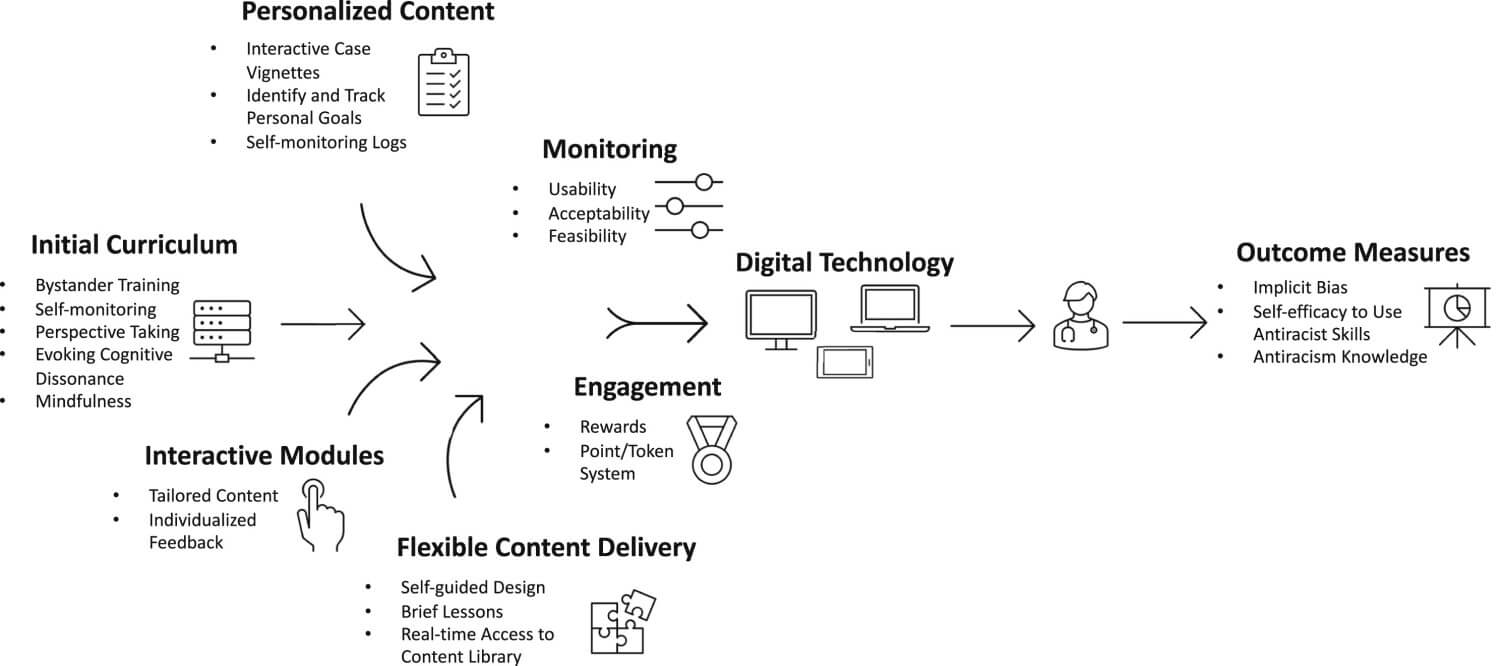Projects
Designing a cognitive-behavioral intervention for anti-hate training in psychiatry using web-based technology
Hate-motivated behavior or expressions of discrimination are often rooted in implicit bias and stigmatizing beliefs. Ethnoracially minoritized groups who are victims of discrimination experience negative health outcomes. There is specific evidence that discrimination is a driver of mental health inequities among youth. Black, Indigenous, and People of Color youth experience disproportionate rates of delayed diagnosis and treatment of autism spectrum disorder, overdiagnosis of conduct disorder, and underdiagnosis of attention deficit hyperactivity disorder. BIPOC adults experience overdiagnosis of schizophrenia, overutilization of antipsychotics with long-term medical consequences, and the underdiagnosis and treatment of depression. There is a strong need for anti-hate interventions targeting racial bias amongst clinicians. However, putting anti-hate principles into practice can be a challenging task due to cognitive processes, which often prevent clinicians from acting according to their core values. This is especially common when under stress or time restraints, which can result in cognitive shortcuts and racial stereotypes. Cognitive-behavioral frameworks have been used successfully to address prejudiced thoughts, feelings, and behaviors but have yet to be applied to clinicians. This work aims to develop and pilot a cognitive-behavioral intervention for anti-hate training in psychiatry using web-based technology.
Prime Lab Website: https://sites.google.com/g.ucla.edu/primelab

Citation: Jansen, Madeline O., Tashalee R. Brown, Kevin Y. Xu, and Anne L. Glowinski. “Using Digital Technology to Overcome Racial Disparities in Child and Adolescent Psychiatry.” Journal of the American Academy of Child & Adolescent Psychiatry 61, no. 10 (October 1, 2022): 1211–17. https://doi.org/10.1016/j.jaac.2022.03.013.
Project Leads

Tashalee Brown
PI



